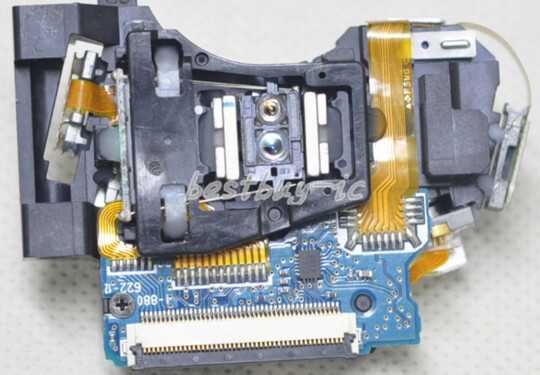A lot of Blu-ray drives use a "dual head" system that uses two completely separate sets of optics to focus the laser beam.

As a result they achieve the best possible optics for both situations rather than having to have a single set that has complicated refocusing or adjustment mechanisms or is slightly sub-optimal for both systems.
Using a single set of optics may be possible, but there would likely be speed or efficiency tradeoffs as you can optimise for one or the other system, or have both being slightly worse off. Trying to fit both laser systems around one set of lenses might be difficult and lead to worse placement. In terms of film media consistent speed is more important than peak speed so slower but more reliable might be acceptable. The wavelengths in use are at opposite sides of the spectrum and small optics may have different absorption or imperfect focusing across the frequencies required. For more information you might like to read about lens performance curves.
A laser lens optimised for one system may have coatings that improve performance by blocking unwanted frequencies of light emitted by an imperfect laser diode system and make it unsuitable for use with other frequencies of light.
In both cases either the fact that it has Blu-ray is irrelevant or is a slight hindrance.
As a result I wouldn't expect a modern Blu-ray drive to perform better than its equivalent new DVD counterpart as they would be using the exact same hardware for reading discs.
A new drive might have better focusing or laser reading abilities, or even have a better firmware, than one made 10 years ago and so might perform slightly better, but I wouldn't expect it to be significant. If you have indeed tried several different drives then chances are it is the disc that is at fault rather than the drives and better lasers are just going to read the same errors.

Not that I have ever experienced – Moab – 2020-01-20T23:58:31.800